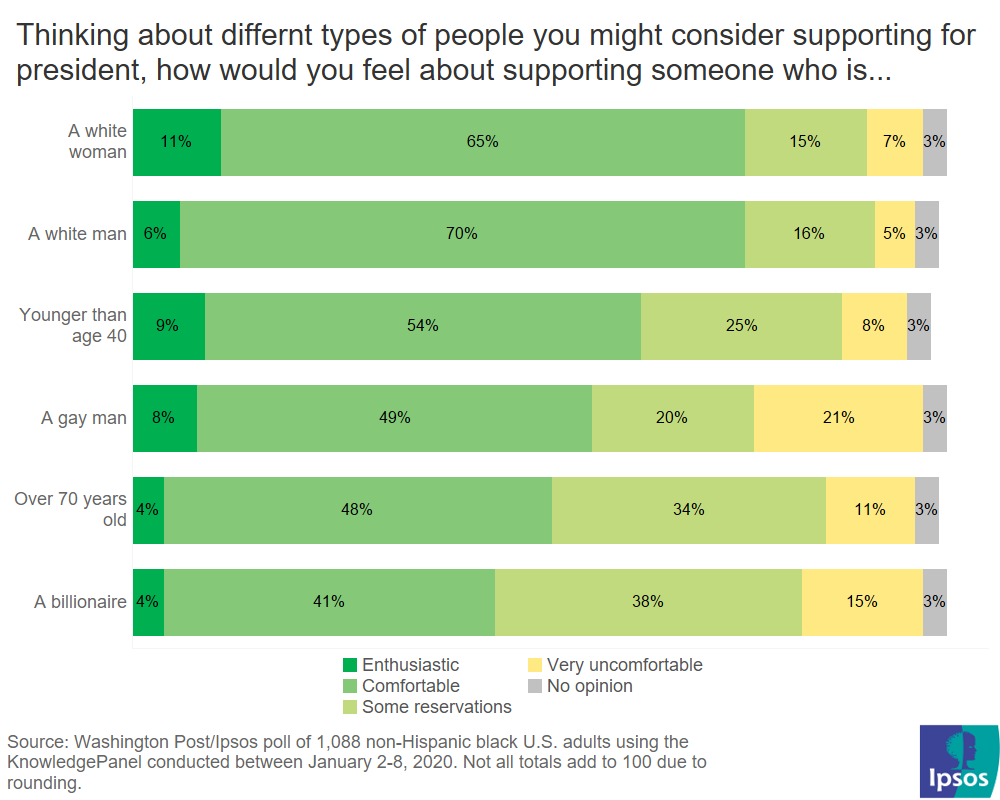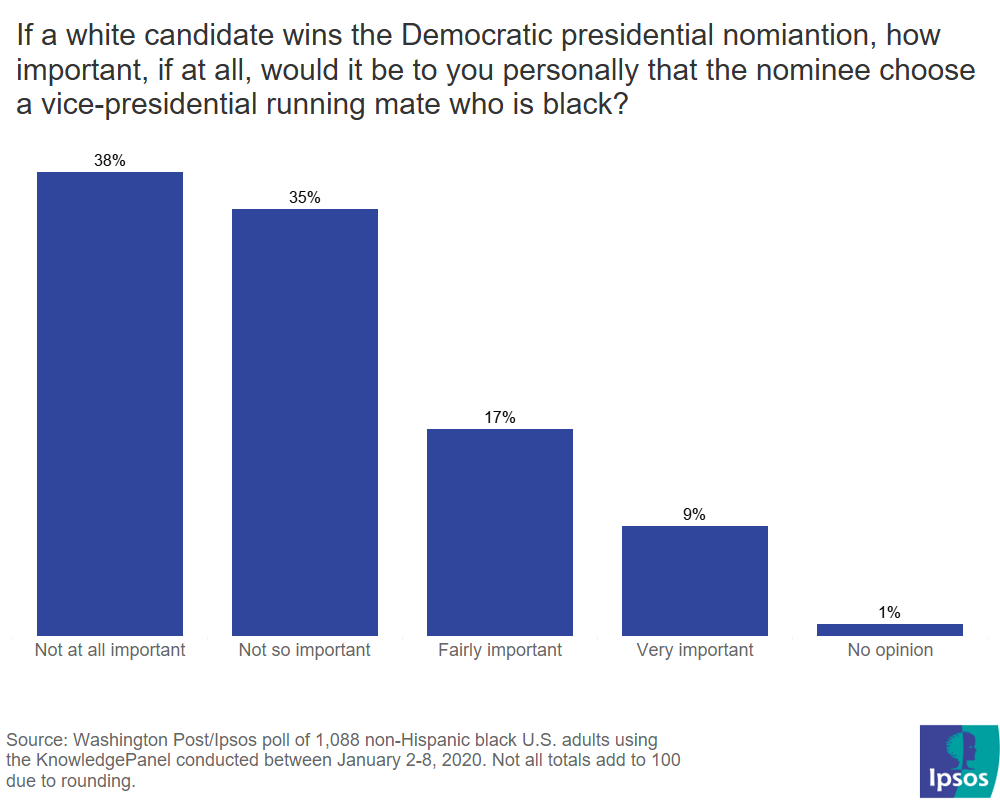Black Voters Aren't into Identity Politics
Senator Corey Booker announced an end to his presidential campaign yesterday, weeks before a single ballot was cast. It was a surprising end to a campaign that initially elicited a great deal of excitement. His exit, along with Senator Kamala Harris’ last month, leaves the field missing its two leading black candidates.
While the 2020 Democratic primary contest has been the most diverse in history, candidates of color have struggled to retain and gain public support. Tomorrow’s debate will include no candidates of color on stage for the first time this cycle.
This comes on the back of a new national Washington Post/Ipsos poll that found that former Vice President Joe Biden is far and away the top pick for the Democratic ticket among black Americans, while Senator Booker only won 4% of their support. Other polling by Reuters/Ipsos found that Biden has almost consistently held support from black Americans through the better part of the primary.
So, how important is identity – racial, gendered, or otherwise – when thinking about how black voters vote?
Many people turn to 2008 for answers. Former president Obama did not consolidate support from black voters until after his upset win in the Iowa caucuses in 2008. A track record of electability and an appeal to white voters was part of what swung black voters in favor of the candidate, who would then go on to become the first African American president of the United States.
These findings align with what we see in the Washington Post/Ipsos poll. Black Americans emphasize electability, particularly this election cycle like many other Democrats. About 57% of black voters believe the Democrats should nominate someone most likely to defeat President Trump in November 2020.
Questions of identity seem less important for these voters when it comes to who to nominate. About three-quarters of black voters are enthusiastic or comfortable with a white woman or man for president.
Age and sexuality may move the needle slightly. Notably absent from top candidates in the Post/Ipsos poll is former Mayor Pete Buttigieg, who some fear may run into roadblocks during his candidacy due to his sexuality. Though when asked generally about supporting a gay man for president, a majority of black voters felt enthusiastic or comfortable doing so.

Notably though, while black voters tend to be more moderate and religious, these positions do not necessarily impact their voting behavior. Candidates who support issues like LGBTQ rights, abortion, and other polarizing issues that might alienate non-black centrists and religious voters, do not appear to turn off black voters to the same extent.
Former president Obama’s support from the black community did not drop after he announced his support of gay marriage. Even though at the state and local level some black communities were mobilizing against legalizing gay marriage, opposition to that hot-button issue did not cut into Obama’s support. More recently, Lori Lightfoot, Chicago’s first openly gay mayor and the first African American woman to serve that office, won against a more centrist black, female opponent, proving on a citywide scale, that those centrist and religious issue positions can be eclipsed with the right candidate.
Even outside of the presidency, identity does not seem to be at the forefront of decision-making among black voters. The Washington Post/Ipsos poll found that there is no consensus among black voters regarding whether a white presidential candidate’s pick of a black VP would animate supporters. About 27 percent of respondents find it very or fairly important that the DNC picks a running mate who is black, while 35 percent and 38 percent find it not so important or not at all important, respectively.

Identity matters when it comes to how black Americans vote and how they think of themselves as a voting bloc, choosing pragmatic candidates for their communities, but becomes a secondary priority when it comes to the identity of the candidate themselves.
Understanding how black voters see themselves and think through their support is essential. There is a clear connection between consolidating support from black voters and winning the Democratic primary. How a candidate runs a campaign, listens to and connects to black communities matters far more than who they are.



